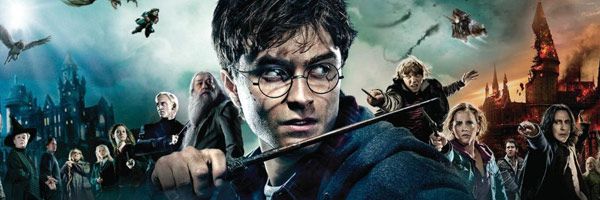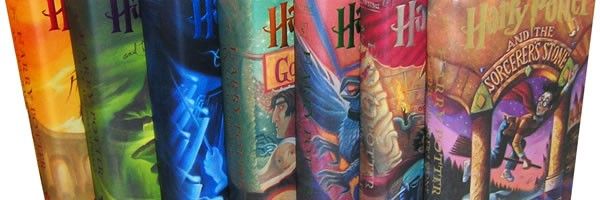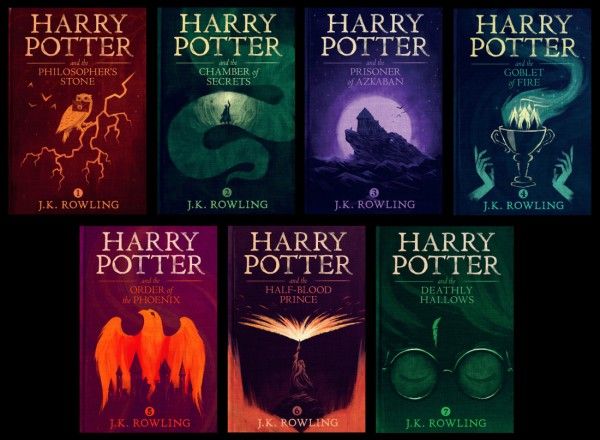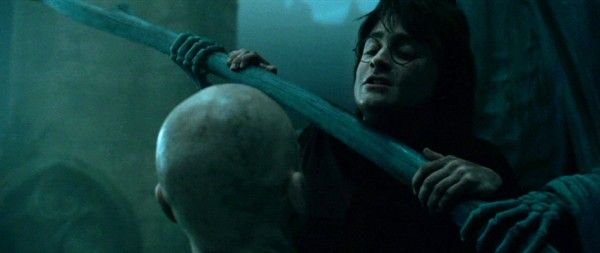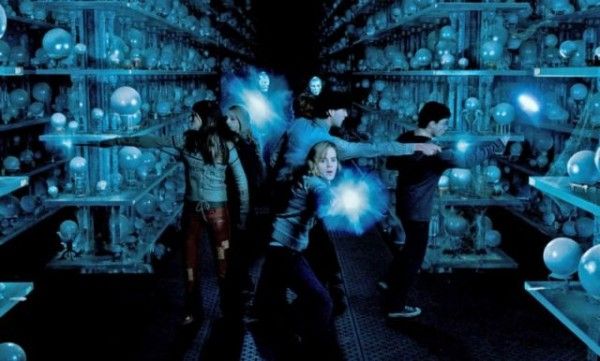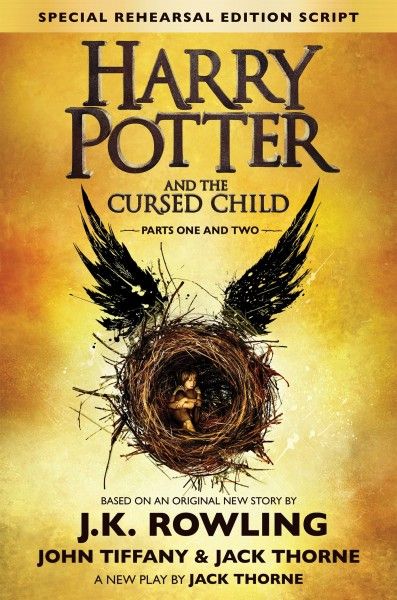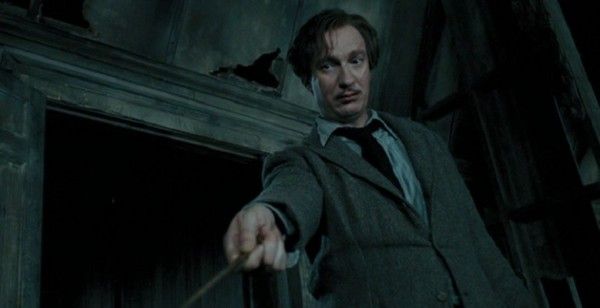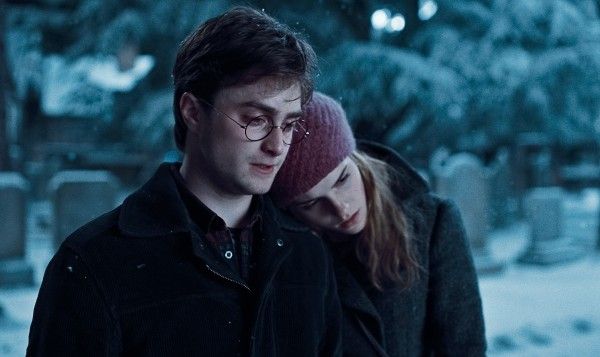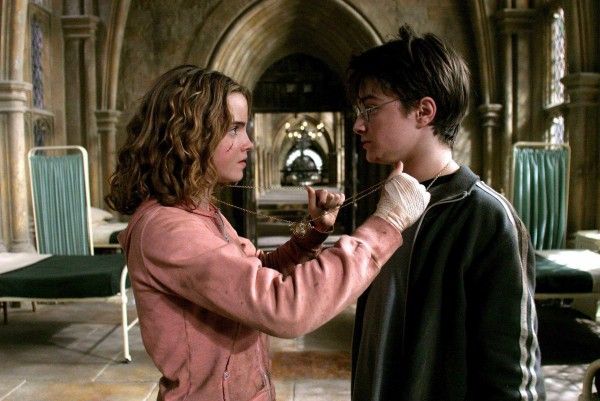Harry Potter is more than a beloved book series. It is a cultural phenomenon, now with its own much-lauded West End sequel: Harry Potter and The Cursed Child. It has been credited (slightly hyperbolically, in my opinion) with getting a generation of kids to read. Much of that is down to J.K. Rowling's mastery as a storyteller. Rowling didn't just create vivid, relatable characters and a tight, unpredictable plot; she imagined into life an entire world for kids and adults alike to escape into. The genius of Rowling's storytelling cannot be underemphasized.
That being said, I think some of the expansive scope for Harry Potter's success comes from its timing — most specifically that it coincided with a great shift in cultural, political, and social consciousness in the United States. I'm writing this from an American perspective, so readers in other countries might feel differently, but given that the American market drives so much of the worldwide pop culture market, the two are not totally unrelated.
Harry Potter and the End of an Era
If you haven't already predicted where I’m going with this, I am talking about 9/11 and the transition into fear culture, growing militarism, and national uncertainty that followed (and, let's be honest, continues to follow). For a generation of readers, this exponential shift in national consciousness coincided with a secondary, much more abrupt widening of the world, one brought into stark focus by the attacks on the Twin Towers.
How does this relate to Harry Potter? Ask any fan about the series' shift in tone, and they can tell you when the books moved from shorter, more traditionally standalone children's book to something darker, longer, and arguably more complex. The shift happens between Prisoner of Azkaban and Goblet of Fire, the latter of which is much longer, less school-focused (it broadens the magical world with the Triwizard Tournament and Quidditch World Cup), and with a sadder, less conclusive ending.
Goblet of Fire begins and ends with death. It's the concluding murder that is particularly jarring, as Cedric Diggory is a student just like Harry or Ron or Hermione. He is good and he is brave, and he still dies at the hands of Voldemort because, sometimes, that's just how the world works. It was a tough, but necessary lesson for young adults and one that kids growing up in the shadow of 9/11 (and, perhaps for British readers, the 7/7 attacks) and the ever-growing “War on Terror” latched onto because it felt relevant to the current world (or at least western world) climate.
Goblet of Fire was released in July 2000, a little more than a year before 9/11. (Also relevant: The first Harry Potter film was released in November 2001, just two months following the terrorist attacks.) The publishing gap between Goblet of Fire and Order of the Phoenix was the longest in the series (roughly three years), with 9/11 falling roughly a third of the way through it. Perhaps Rowling, too, was trying to come to terms with a world changing faster than a Hungarian Horntail chasing after a Harry Potter on a broomstick.
In the time between Goblet of Fire and Order of the Phoenix, America (and Britain, for that matter) would enter the Iraq War. Attacks on and prejudice against Muslim Americans (and other minority groups) would increase. The economy would slip into a recession and joblessness would rise. Concurrently, the Harry Potter series continued down its relatively dark path, with many more characters dying over the course of the series and Harry struggling to deal with the inevitability of death as he watches Cedric, Sirius, Dumbledore, Snape, and eventually himself die.
In the later Harry Potter books, the wizarding world would slip into its own period of uncertainty and fear following Voldemort’s return at the end of Goblet of Fire. As America (and the rest of the western world) saw its own economic, national, and civil securities threatened, Harry and his friends were going through something similar. In this way, Harry Potter wasn’t purely an escape to a place of wonder and magic, but a cathartic storytelling experience where readers could live out their own fears and anxieties about a changing, uncertain, and sometimes cruel world from the safety of their favorite reading chair.
The Concurrent Rise of Internet Culture and Online Fandom
This seems a good time to mention another time-specific aspect of the Harry Potter phenomenon: online fandom. The Harry Potter books came into being alongside the rise of Internet culture, the two developing hand-in-hand. For so many kids, the Internet, like Harry Potter, was a place of wonder, exploration and community — in other words, a place of magic. In the same way that Harry Potter provided a safe, immersive, and supportive community for kids and teens to escape to, the Internet began to do the same, with Harry Potter fansites becoming some of the most active places in the early years of the Internet.
This was particularly true during the period between the release of Goblet of Fire and the release of Order of the Phoenix. In Harry Potter fandom, this period if known as “the three-year summer,” and was a particularly prolific time for Harry Potter fanfiction in particular. While waiting for the next canon installment of the series to come out and with the aid of the ever-growing Internet community, online fandom exploded with original stories that used the Harry Potter setting, themes, and characters to work through questions and concerns about themselves and the world around them. In many ways, fanfiction (and fandom as a whole) is an extreme form of media and cultural literacy, and it is one that — along with Harry Potter — has defined a generation.
The Function of Pop Sulture Phenomena
It’s impossible to mourn and heal a tragedy that hasn’t yet fully passed. The repercussions of 9/11 are still alive and well in American society and in the larger world order. They are felt in the rising national debt of our country, the growing ideological schism between the right and the left, and the increasingly nationalistic tendencies of countries to build walls of both the physical and metaphorical varieties.
The tragedy is ongoing, which makes getting over it a heck of a lot harder. No, Harry Potter didn’t heal us. But I would argue that this is not fiction’s job. It offers an escape. It offers insight. It offers a mirror. But it is not news or national discourse or community building (at least, not on its own). It is not an entire nation owning up to and facing its fears and the part we have played (and continue to play) in creating the very real threats that inspire those fears. That can’t happen in one storytelling universe. That has to happen across many books and TV shows and news programs and chat rooms and conversations at the grocery store and national political debates.
That being said, it doesn’t surprise me that Harry Potter maintains such a strong grip on my generation, so much so that many Americans (including this one) have traveled to or plan to travel to London to see the latest addition to the canon: Harry Potter and the Cursed Child. Existing in this world seems scarier than ever, and it has everything to do with the fact that we have yet to turn around and face our demons, we have yet to understand how we helped create them and why they lash out at us in anger and frustration and unforgivable (but not motive-less or logic-less) murder.
These are the Unforgivable Curses of the modern Muggle era. In place of The Cruciatus Curse, we have Guantanamo Bay. In place of The Imperius Curse, we have the ratings-driven, propaganda-laden cable news media. In place of The Killing Curse, we have men shooting up movie theaters or churches and driving their cars through crowds of celebrating men, women, and children. The list, unfortunately, goes on. We have far too many real-life comparisons, without even venturing past my admittedly western-centric perspective to the atrocities and injustices that take place outside the concerns of western powers and their citizens.
We will always need stories — if not as a place to solve these complicated problems, than as a place to work through our own fears and anxieties surrounding them. Harry Potter was that for me and for so many other people of my generation. It came at a very specific time, at the intersection of a seismic shift in this country and the rise in the ability to form communities (via the Internet) like never before. I’m not sure Harry Potter would have the same impact if it were released today. I think we may need new kinds of stories. I’m just glad it was there when I needed it, and that the world of Harry Potter continues to be there when I need a home to return to.
[This is a repost of an older feature for your reading pleasure over this holiday weekend.]

